30th Anniversary of Genetics Pioneer Institution
An institution that started from a small room with a dining table has metamorphized into a state-of-art diagnostics and translation research powerhouse in the arena of genetics and genomics in India.
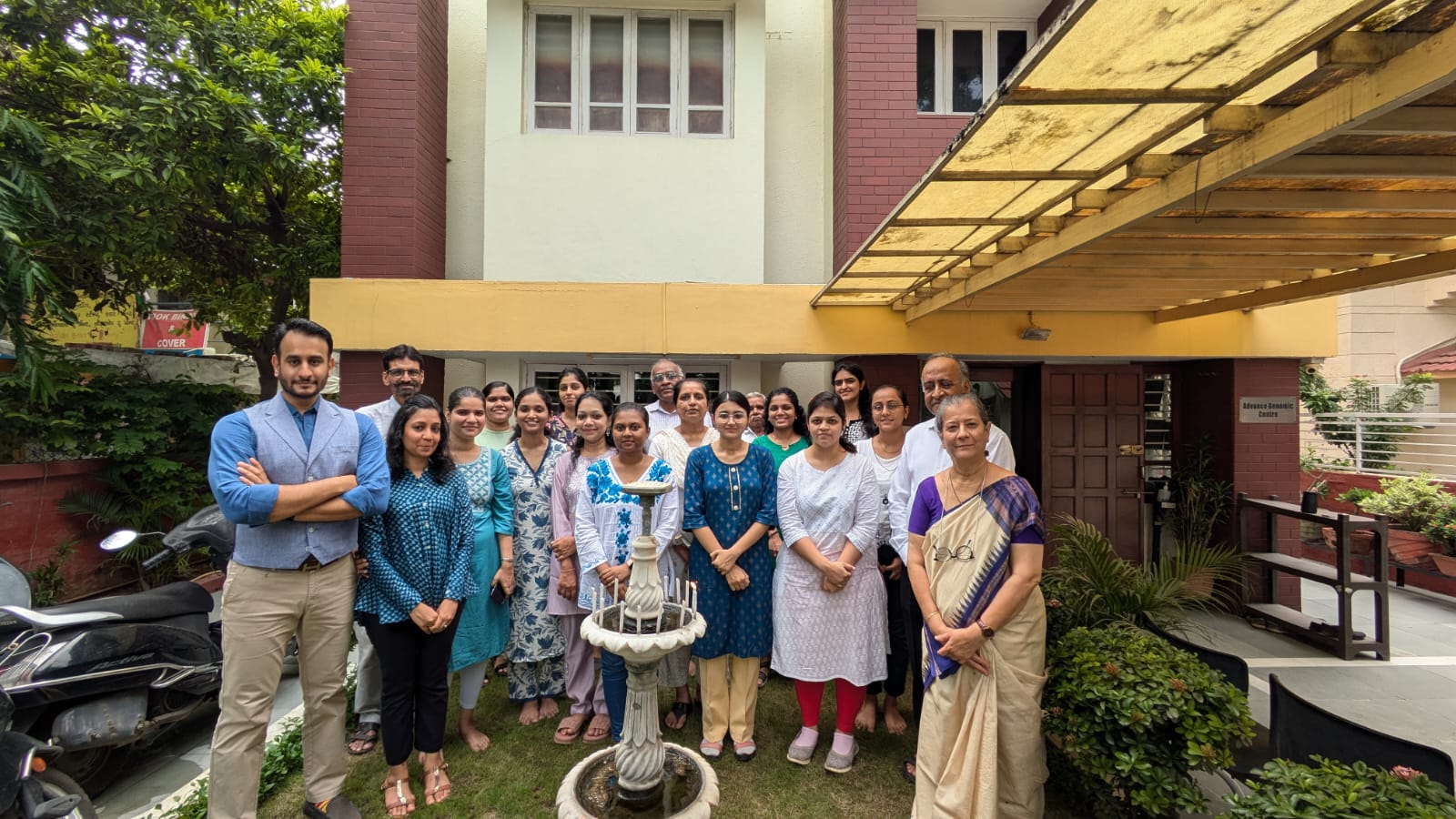
The inception
The inception of the institute dates back to 16th October 1994 when two young scientists braved the idea to begin their own genetic diagnostic institute with a small room and a dining table as their working space.
Cash starved like all start-ups but scientific ingenuity and zest to serve the healthcare community prevailed.
Carrying out tissue culture on a wooden dining table and using pressure cooker with carefully controlled heater acted as an oven to grow cells. From these cells, they would pull out chromosomes, large chunks of DNA, and look under microscope to study disorders like Down syndrome.
Being the first in the field in Gujarat was a challenging affair but the community supported the idea of predicting disorders in the womb was the holy grail the doctors were looking for-. infact it was later on one of the promises of the Human Genome Project.
The first decade (1994-2004)
The first 10 years were spent in developing protocols that didn’t exist for carrying out genetic diagnostics, forging national and international collaborations, bringing international expertise into the realm of Indian genetics and an unbridled stage of discoveries.
Through international collaborations with Geneve University, the coupled carried out linkage analysis and discovered the gene for autosomal dominant hidrotic ectodermal dysplasia (Clouston syndrome) in a large family from Modasa, Gujarat.
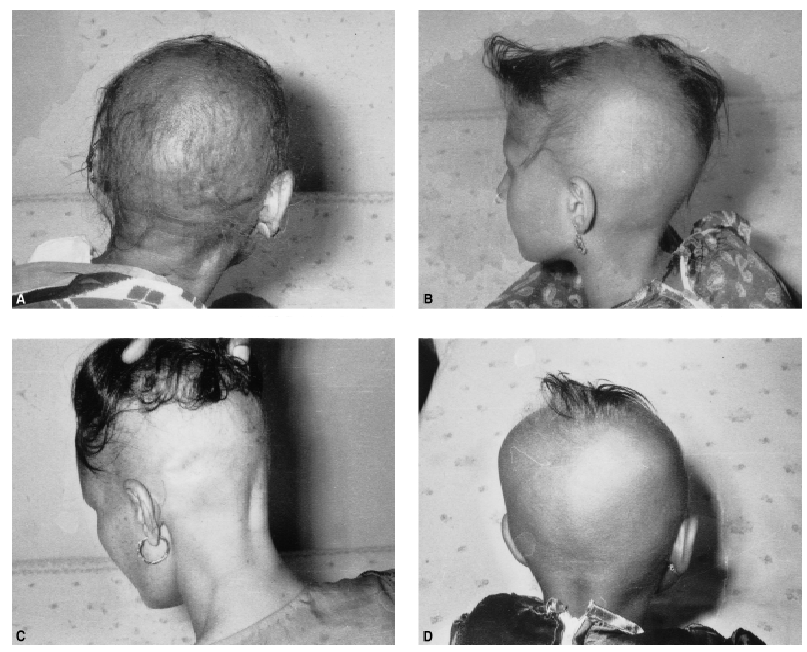
Image of patients with Clounston syndrome (courtesy of Radhakrishna et al 1997).
This seemingly simple work by today’s standards galvanised the medical fraternity to provide genetic counselling to this community in Modasa. Today, the disease is all but non-existent through such genetic screening and counselling programs in this community.
At the end of the decade, the couple conducted the first international conference which was attended by then CM of Gujarat, Shri Narendrabhai Modi.
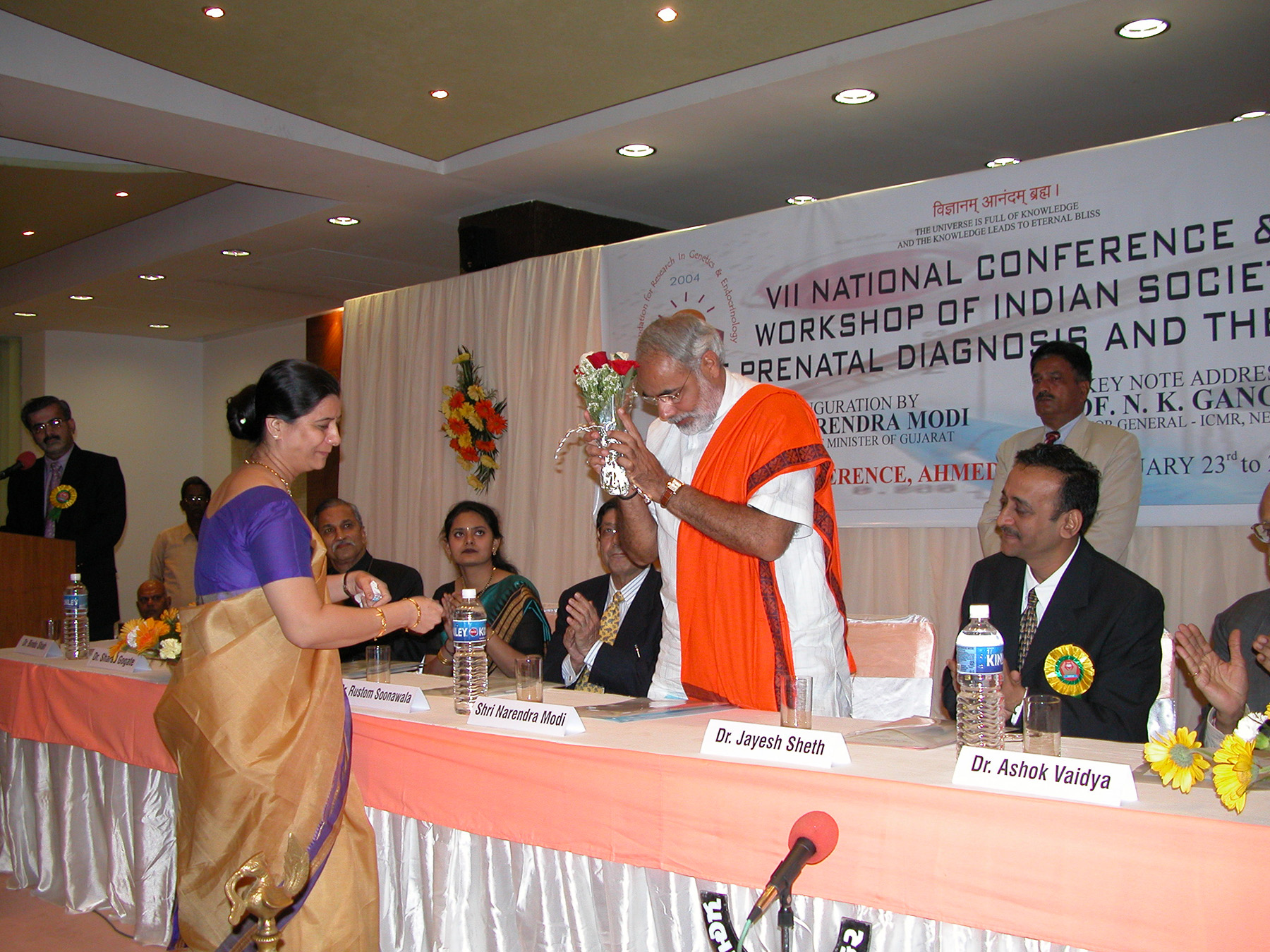
Shri Narendra Modi- Former Chief Minister of Gujarat, Republic of India
In 2004, FRIGE had organised an international conference in conjunction with ISPAT. The conference’s opening ceremony was led by the former Chief Minister of Gujarat and current Prime Minister of the Republic of India- Shri Narendra Modi. During the conference, he gave a wonderful insight into the role of healthcare:
We commit ourselves to make all possible efforts towards total elimination of atrocities against women, particularly female foeticide and infanticide, so as to achieve the target of health for all
23rd January 2004, 7th National ISPAT Conference, Ahmedabad.
The second decade (2004-2014)
This decade saw the institute take shape into what it is today. Gleaming arrays of microscopes, computers, CO2 incubators, laminar flow and PCR based diagnostics.
The Human Genome Project was complete and the first draft of the Human Genome provided much needed boost to the molecular diagnostics.
With this draft human genome, the team at FRIGE started to develop molecular diagnostic approaches that involved RFLP-PCR, ARMS-PCR. endpoint-PCR, Q-PCR and Q-RT-PCR.
Under the leadership of Dr. Frenny Sheth, the institute developed India’s first array of indigenously manufactured FISH probes using BAC clones which could target any given loci in the genome. Her team also established one of India’s first microarray service for diagnostic purpose.
Simultaneously, team led by Dr. Jayesh Sheth made strides in developing groundbreaking protocols for biochemical diagnosis of a class of disorders known as lysosomal storage disorders. Later his team lead several pioneering work in this domain together with endocrinology, male infertility and neural tube defect prevention using maternal vitamin B12 supplementation.
The end of the decade saw the couple conduct their second international conference which was attended by in conjunction with the Indian Society of Human Genetics. The conference’s opening ceremony was led by the former President of the Republic of India- Prof. A.P.J. Abdul Kalam.
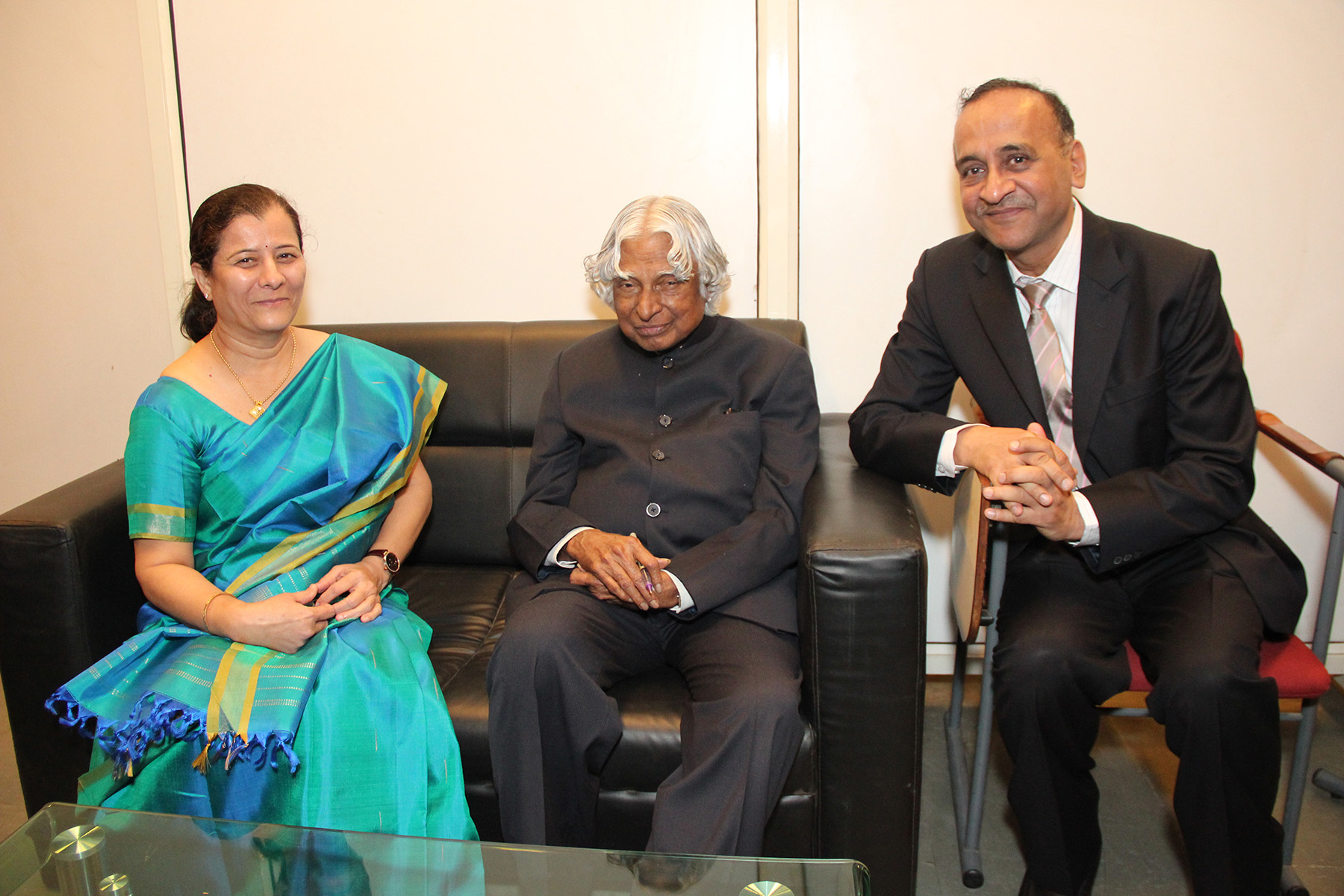
Dr. A.P.J. Abdul Kalam- Former President of the Republic of India
Subsequently, he gave a rousing feedback on their work
Dr Jayesh and Dr Frenny sheth at Foundation for Research in Genetics and Endocrinology (FRIGE) have been doing important work in the field of Genetics and Endocrinology. This is the self-financed foundation and its income comes from the training program/ conferences/ symposia held by FRIGE and partly from the Genetics Centre where they offer diagnostic and counseling services.
28th March 2014, Hyderabad, RCOG World Congress
Prof Jayesh Sheth and his wife Dr. Frenny Sheth are doing exemplary research work at Foundation for Research in Genetics and Endocrinology (FRIGE), Ahmedabad. I visited the last year and learned that gene therapy is a promising new field of medical research.
20th March 2015, Hyderabad, National Conference on Rare Disease
The third decade (2014-today)
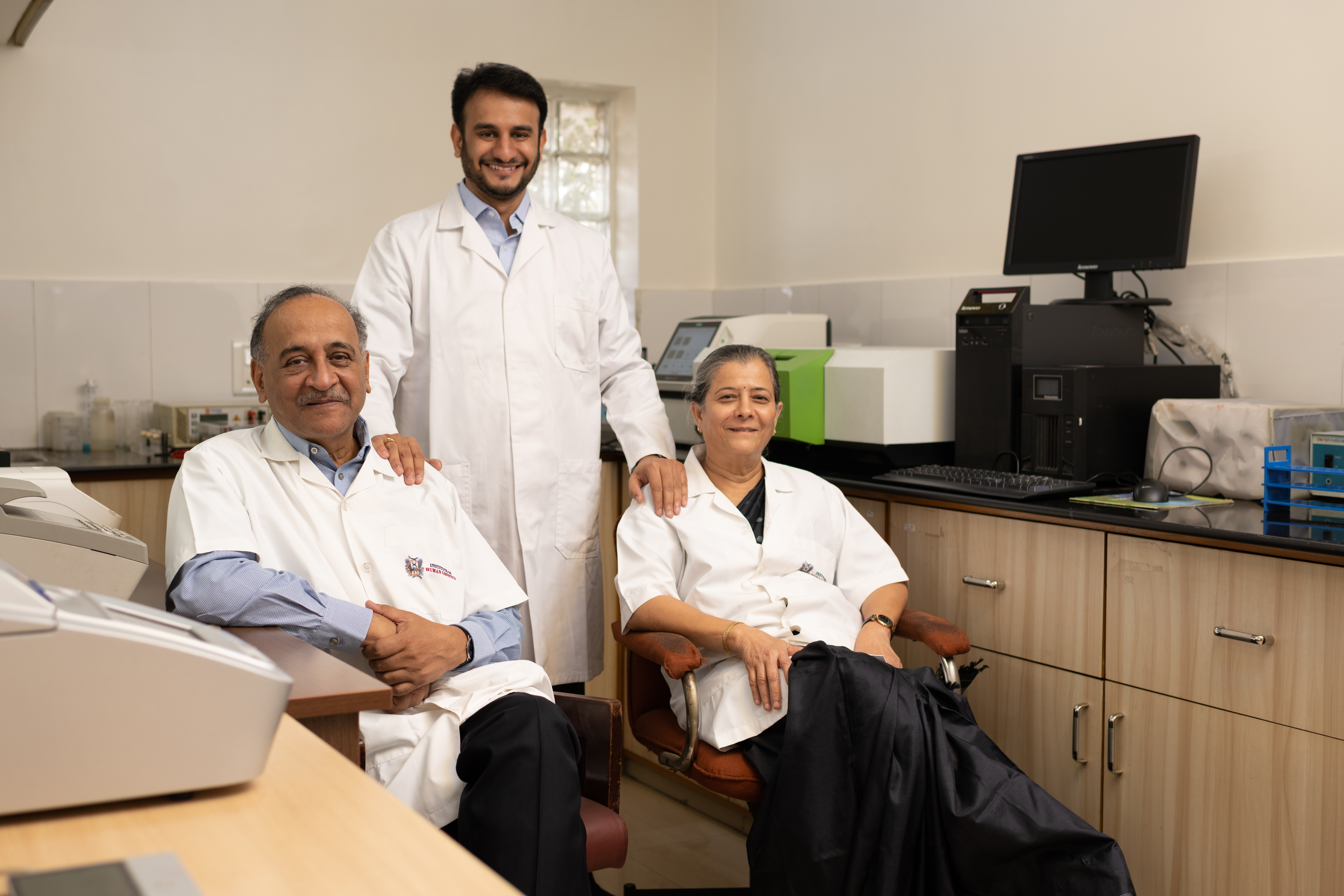
The trio who lead the institute today- Dr. Jayesh Sheth, Dr. Frenny Sheth and Dr. Harsh Sheth
Advancements in first and second generation sequencing platforms propelled the world into a frenzy by enabling ever deeper insights into human genome. For the first time, all 21,000 genes could be screened simultaneously at a single base level in the DNA at an affordable cost and short turnaround time.
The institute simultaneously rose up to this new challenge and developed collaborations, protocols and procedures to harness the technology.
It developed its own computational core unit which scripted pipelines to analyse the barrage of data generated by these platforms and provided ever sophisticated analysis of the genome.
For the first time, the institute started to develop indigenous sequencing technologies in-house to usher in the era of genomics and enabled it to offer insights into the DNA en masse.
These technological innovations spurred research into previously unchartered diseases such as lysosomal storage disorders, autism spectrum disorders, Lynch syndrome, cancer prevention, neurodevelopmental disorders, inborn errors of metabolism and male infertility.
The highlights
- 1997- Discovery of the gene for Clounston syndrome affected family in Gujarat
- 2003- Role of MTHFR gene polymorphism in Down syndrome
- 2004- Beginning research on lysosomal storage disorders in India
- 2011- Role of vitamin B12 deficiency in neural tube defects in India
- 2013- India’s first and only data on the genetic cause of repeated foetal loss
- 2014- Developing methods for lysosomal storage disorder diagnosis in prenatal samples
- 2015- Member of National Task Force on lysosomal storage disorder
- 2019- Genotypic spectrum of primary and secondary microcephaly
- 2019- Member of ICMR’s National Task Force on Rare Genetic Disorders
- 2019- Member of South Africa’s Open Genome Project
- 2020- Aspirin based cancer prevention in Lynch syndrome patients
- 2020- smMIP based sequencing assay for microsatellite instability detection in colorectal cancer
- 2020- Aspirin recommended for cancer prevention in Lynch syndrome patients in the UK
- 2022- Resistant Starch based cancer prevention in Lynch syndrome patients
- 2022- India’s largest collection of work on lysosomal storage disorder published
- 2022- Member of ICMR’s Task Force on Precision Oncology
- 2023- India’s first genetic architecture of autism spectrum disorder discovered
- 2024- smMIP based sequencing assay for lysosomal storage disorder diagnosis providing highest diagnostic yield
- 2024- Aspirin recommended for cancer prevention in Lynch syndrome patients in the India
- 2024- Burden of rare genetic disorders in India elucidated
- 2025- India’s first founder mutation for Lynch syndrome identified
Epilogue
Today, the institute consists of a 30-member team which is hosted in a gleaming 3 storied building in the heart of Ahmedabad. Despite its size, the institute has not swerved from its founding principles of serving the humanity and exploring the frontiers of science & technology. It has served over 100,000 patients, published over 300 publications and 5 books, obtained 3 national and international patents and mentored over 300 biotechnology students.
The dream of its founding parents has come to fruition and will continue to abide by its motto- To discover. To Translate. To propagate.